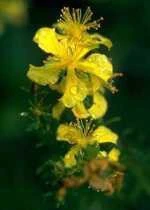Scorpions, Centipedes, and Hornets Nests: Chinese Herbal Medicine History
Even though Chinese Medicine is new to many of us, it is far from a new medicine, a new "alternative", or any other relationship to "new" that it may gain in popular media. The theories and methods utilized within Chinese Medicine are drawn from thousands and thousands of years of collective human experience. When people ask "does it really work?", this question always amazes me. This is not because I'm surprised that they are unfamiliar with some of the techniques, but because of how much sense it makes when people stop and think about it. We are surrounded by medicine (plants, fruits, meats, drinks, etc.) and we've been naturally massaging, poking, and proding ourselves since the beginning of time. Chinese Medicine is simply an ongoing culmination of our human experience, what helps us, what doesn't, what regulates imbalances, and what creates them.
One of the main strengths within Chinese Medicine is this very, very long history of trial and error. All of the acupuncture points, and their nearly infinite combinations have been used time and time again for thousands of years and we benefit greatly from this knowledge. Chinese Herbal Medicine and the endless possibilities of interactions, actions and reactions have been studied, shared, and continually expanded upon for well over 3000 years.
 As I, and nearly every other health practitioner worldwide, talk about the need for getting back to basics, eating whole foods in their natural form, staying away from processed, diluted, and created entities, we begin to be amazed at how good these steps are for us. But even beyond being amazed at how the simple things help us, it is interesting to think about how this knowledge came about. How did we know to eat broccoli, for example, or beets, or carrots? How did we know what helps us and what harms us long before we could evaluate things scientifically? To me it is amazing that this knowledge comes naturally to us, and now that we can look at many things scientifically it is amazing how our mind and bodies instinctually and collectively already knew that the findings would be positive.
As I, and nearly every other health practitioner worldwide, talk about the need for getting back to basics, eating whole foods in their natural form, staying away from processed, diluted, and created entities, we begin to be amazed at how good these steps are for us. But even beyond being amazed at how the simple things help us, it is interesting to think about how this knowledge came about. How did we know to eat broccoli, for example, or beets, or carrots? How did we know what helps us and what harms us long before we could evaluate things scientifically? To me it is amazing that this knowledge comes naturally to us, and now that we can look at many things scientifically it is amazing how our mind and bodies instinctually and collectively already knew that the findings would be positive.
This human history comes out strongly in the vast array and amazing body of information available to us within Chinese herbal medicine. Who thinks for example, hmmm my Child is having chronic convulsions - perhaps grinding up a scorpion and drinking it as a tea would help! Well in our human history we have and it works. Scorpions, or Quan Xie in Chinese, are used as medicine not just to treat childhood convulsions but also for seizures, tremors, swellings and headaches. This is an example of the like treats like component of human exploration, very common within homeopathy and other systems of medicine as well. A scorpion sting causes similar reactions so why couldn't it treat them? Seriously, though, aren't we glad that someone already tried this out for us and confirmed not just that it works, but how to use it, what to combine it with to make it more effective and to restrict any possible side effects?
Along the same lines of thinking that brought us scorpions as medicine, we also have Centipedes, or Wu Gong in Chinese. Centipedes are also useful for chronic childhood convulsions and headaches, just like scorpions. They are also useful for lumps in the neck and snake bite of all things. Similarly, who thinks, hmmm I was just bitten by a snake perhaps I'll drink that centipede over there to heal myself! I'm sure glad someone else tried that one...
And, just to complete the title that drew you in so closely to this article, hornets nest, or Lu Feng Fang in Chinese, is useful for toothache when gargled and topically for ringworm, and various rashes.
Now, obviously, I picked some of the strangest examples just to make the point within this article. But two things stand out. First, while they are within the Chinese herbal pharmacy, many of the herbs are not only found in China. The herbs within the Chinese system are not simply Chinese herbs or even grown in China necessarily, this is from the sharing that has happened cross-culturally over the years continuing up to present times. Second, while you are glad you are not the one to try all of these out, even as a layperson many of these herbs make sense even without knowing all of the biochemical reactions that lie behind their effectiveness.
 As with acupuncture which has developed cross-culturally over time, "Chinese" herbal medicine is not just "Chinese". It is a medicine, a set of theories, and useful applications that have been developed by all of us for all of us. The only real difference between Chinese Medicine and other natural systems such as those found within Native Americans, and every other cultural group that has ever existed, is how well it has been preserved, shared, and developed. The theories and applications are surprisingly similar.
As with acupuncture which has developed cross-culturally over time, "Chinese" herbal medicine is not just "Chinese". It is a medicine, a set of theories, and useful applications that have been developed by all of us for all of us. The only real difference between Chinese Medicine and other natural systems such as those found within Native Americans, and every other cultural group that has ever existed, is how well it has been preserved, shared, and developed. The theories and applications are surprisingly similar.
Finally, and to bring some of the discussion closer to home, I leave you with the chance to explore the following herbs as examples. A few of these herbs can be found and/or grown locally:
And for those of you who read your bibles, these will seem familiar:
tag @yinyanghouse for questions/comments